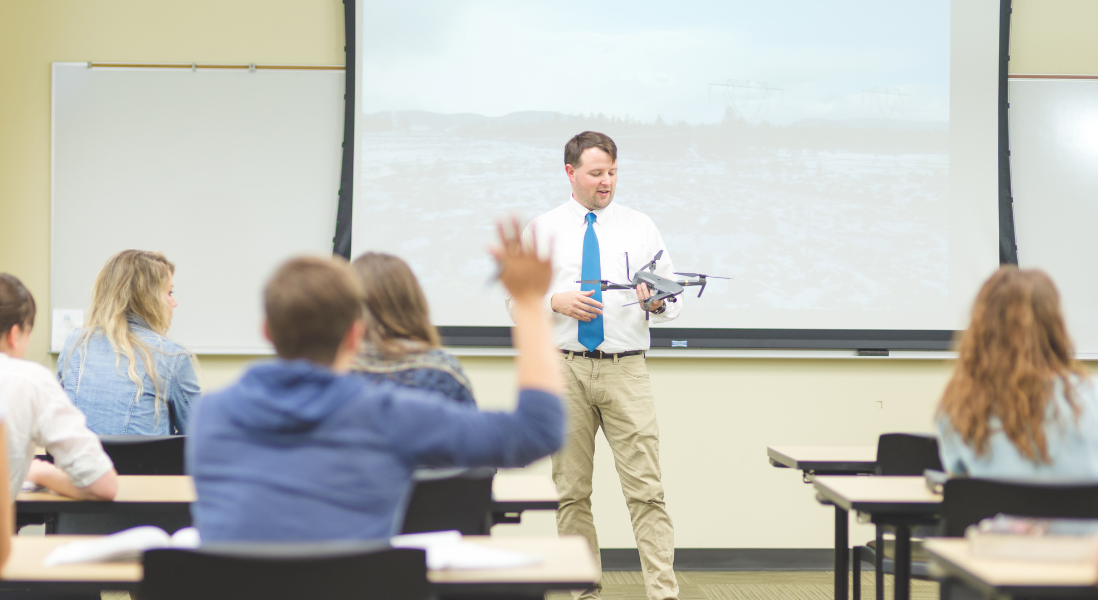
“AI enhances education for all learners” means using smart technology to make learning easier, more personalised, and fair for everyone. In 2025, this matters more than ever, as AI helps teachers support each student’s unique needs while making lessons more engaging and effective. This article explores eight powerful ways AI is transforming education, helping every learner succeed no matter their background or ability.

Tailored Learning Experiences
One of the most significant contributions of AI in education is the development of tailored learning experiences that cater to the unique requirements of each learner. By evaluating individual strengths and weaknesses, AI-powered platforms can curate personalised educational paths that evolve over time. This strategy not only boosts learning outcomes but also inspires students to remain engaged and motivated to attain their academic aspirations. For additional insights on personalised approaches, refer to Edutopia’s perspectives on personalised learning.
Dynamic Curriculum Adaptation
Another essential capability of AI lies in the formulation of dynamic curricula. Traditional teaching often adopts a one-size-fits-all format, which can inadvertently marginalise certain students. AI can assess individual learning preferences and curate course materials accordingly, ensuring that educational content is both relevant and appropriately challenging. This tailored approach catalyses enhanced performance metrics and academic success across a diverse student body.
Streamlined Assessment with Automated Feedback
The integration of AI into educational assessments—through automated grading and real-time feedback , provides educators and students with prompt insights into academic performance. This innovation not only conserves valuable time for teachers but also equips students with timely guidance and resources essential for their continuous improvement. AI’s capacity to analyse written submissions allows instructors to pinpoint common challenges, aiding in personalised corrective actions. Discover more about this trend at Educational Technology’s exploration of automated grading.
AI-Driven Tutoring Systems
AI-driven tutoring systems provide students with personalised support akin to having a dedicated tutor. These platforms adapt instructional materials based on real-time interactions and performance data, offering customised practice opportunities that align with individual learning needs. Such educational technology not only enhances the learning experience but also leads to improved academic achievements. Learn more about the potential of intelligent tutoring systems in this insightful article from Learning Sciences International.
Advancing Accessibility in Education
AI is instrumental in advancing accessibility in education, ensuring that learning environments are more inclusive for students with diverse needs. Tools like speech recognition software, visual aids, and interactive learning platforms help craft engaging experiences tailored to varied requirements. This commitment to inclusivity enhances educational outcomes, ensuring that every student has the means to succeed.
Predictive Insights for Proactive Interventions
Leveraging predictive analytics, AI can identify students at risk and forecast future academic performance. By amalgamating and scrutinizing diverse data points, educational institutions can roll out early intervention measures to address potential challenges proactively. Such foresight not only improves learning outcomes but also cultivates a success-oriented environment conducive to long-term educational advancements.
Access to Global Educational Resources
AI broadens the horizon for global educational resources, granting students and educators access to a plethora of diverse materials worldwide. By embracing varied educational contents and pedagogical approaches, AI enriches the learning experience and fortifies academic performance on a global scale. Platforms utilising AI can furnish students with comprehensive learning tools, enhancing both educational and cultural comprehension.
Fostering Collaborative Learning
AI encourages more collaborative learning spaces, enabling group work and peer interactions through intelligent technology. AI platforms can adeptly pair students with complementary skills, fostering varied perspectives and enhancing teamwork in problem-solving scenarios. This collaborative approach not only improves learning outcomes but also equips students with the real-world skills essential for today’s workforce.
Through the adoption of these innovative strategies, AI plays a pivotal role in enhancing educational outcomes, guaranteeing a customized and conducive learning experience for all. As we further explore AI’s integration into education, the scope for innovation and improved academic success remains boundless.
Final Thoughts
I’ve explored how AI can truly improve education. From creating personalized learning experiences to using smart tutoring tools, AI helps me support every learner better. With access to data and global resources, I can make sure each student has what they need to succeed. This journey has already boosted learning outcomes, and I believe even more progress is possible in the future.
Next Steps:
- Identify specific AI tools that align with my students’ needs.
- Train staff to use these tools effectively in the classroom.
- Monitor student progress and adjust strategies using data insights.
- Stay informed on new AI developments to keep improving learning methods.






